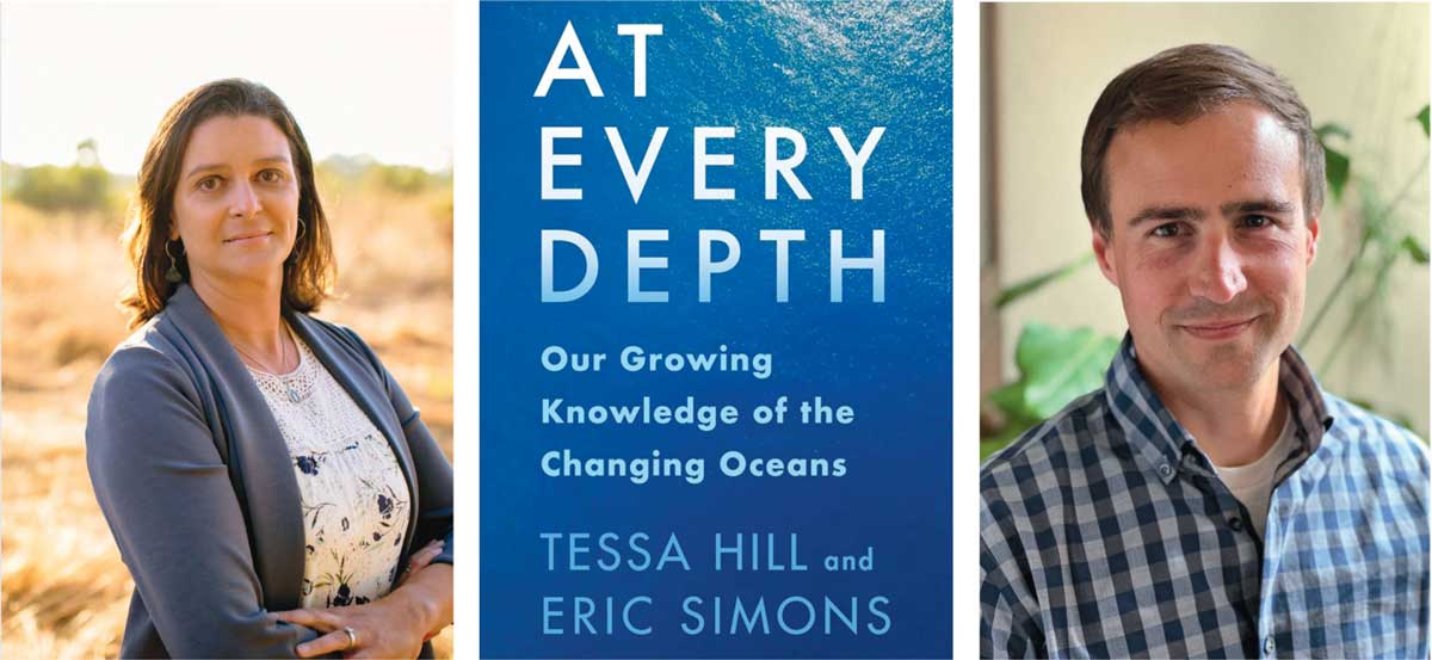A Lesson at Every Depth
When Tessa Hill and Eric Simons decided to collaborate on a book about the state of the ocean, they realized “that what people are losing is a connection to the ocean,” Hill said at an April book release event hosted by Hog Island Oyster Co. in Marshall.
In the prologue to At Every Depth: Our Growing Knowledge of the Changing Oceans (Columbia University Press, 2024), Hill (a professor of earth and planetary science at UC Davis) and Simons (a writer and former editor of Bay Nature magazine) describe a common view of the ocean as “an open blue palette separating the places where life happens.” But, as they write, the reality is that the ocean is a “mosaic,” as complex and nuanced as the land on which we dwell. And, like the landscapes ashore, the ocean is experiencing unprecedented change.
At Every Depth explores the changes happening to oceanscapes around the world, from rocky coastal tidepools to the “near-freezing black darkness of the deep” below 3,000 feet. Instead of relying solely on scientific research, the authors turned to what Simons describes as “the people who care a lot,” about specific oceanic locales and the changes affecting these places. The book is a series of stories of these people who “know the ocean very well,” including marine biologists, oceanographers, conservationists, fishers and indigenous community members. The collection of these voices creates a clarion call for us land dwellers to engage and connect with the ocean, to better understand and protect this life source that is as critical to our existence as the land we cultivate and the air we breathe.
“We believed that by telling stories about people who care a lot, you can make people care a lot,” said Simons.
In their epilogue, Hill and Simons share the hair-raising news that in the past few years the ocean has changed faster than at any previous point in human history. And yet, after immersing themselves in the subject of the state of the ocean and its inhabitants, the authors are able to strike a tone of hope. This optimism derives from what they see as a new scientific moment, one in which science is integrated with generational knowledge, lived experience and community effort, and they offer powerful examples of the impact individual engagement can have in saving species and protecting environments.




